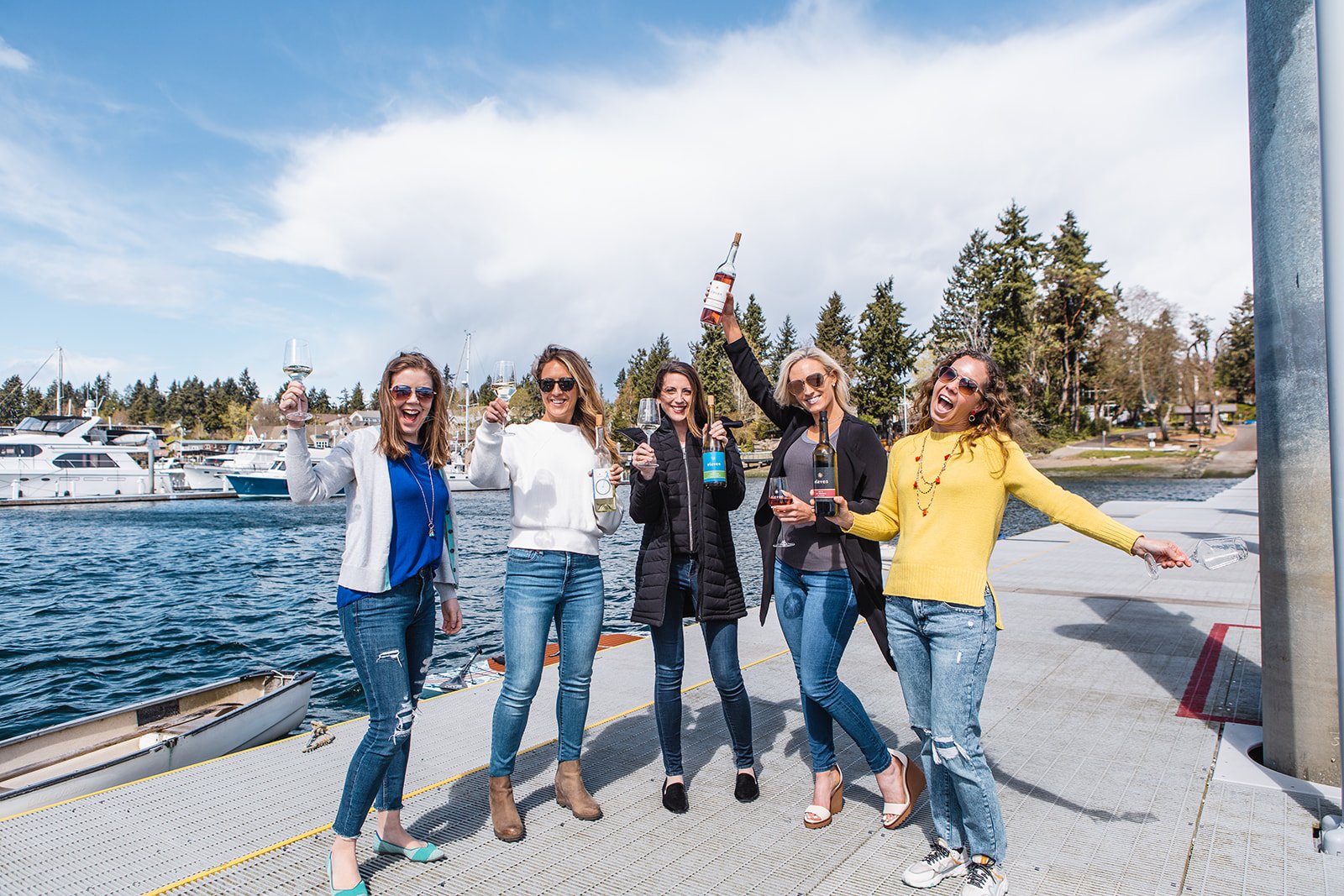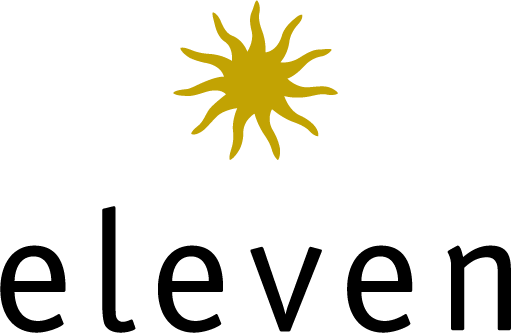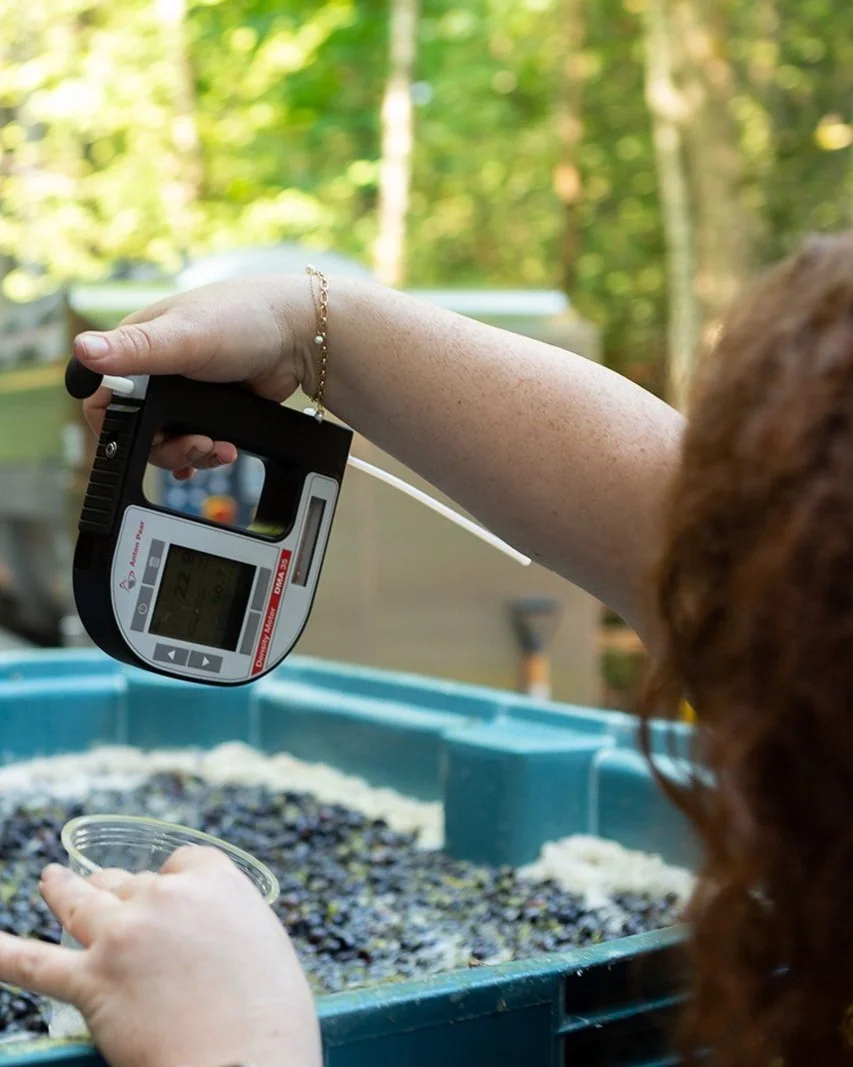
About
Eleven is the result, ultimately, of an epiphany.
Our founder and winemaker, Matt Albee, having hung up his racing bike after chasing the dream of professional suffering on two wheels around the globe, started looking around for what to do next. Having left graduate school in physics years earlier to pursue bicycle racing while his legs were still young, he considered going back to school, but the slow pace of scientific research is enough to lull just about anyone to sleep, which is what it did to him one morning as he dozed over a neuropsychology text in the Fall of 1999. In that half-awake state where dreams and reality mingle and chat like guests at a party, the epiphany struck, as though everyone at the party stopped talking all at once except for a single voice that said clearly "you should be a winemaker." Such a voice is not wisely ignored, so Matt set about finding a way to try winemaking. Matt and his wife Sarah were living in the San Francisco Bay area, where they had spent many weekends touring and tasting at wineries, so it seemed like giving winemaking a try might be feasible without having to go too far. Matt had met the winemaker at Page Mill Winery, a small winery located near where he was living in Menlo Park, California. It was September, and his offer to help Dane Stark with harvest was met with an obvious "of course!" Within a few days he found himself standing atop the crush stand in the cool morning air, dumping 30-pound boxes of grapes into the crusher. Then and there, he knew that his destiny was sealed. He started going to the winery every morning before work, and after a few days Dane suggested that he make a barrel of wine of his own, "and do it now,” he said, “because if you wait even a few weeks, you'll have to wait until next year." Matt found some grapes for sale and made a barrel of chardonnay that year, and continued helping out at the winery after harvest ended. Over the next three years, Dane, generous to a fault with his time, space, and equipment, taught Matt how to make great wine, and Matt spent as much time as possible working in the cellar. After three years, Matt's ambitions outgrew the limited extra space at Page Mill. He and Sarah searched for a place to put down roots in California, but ultimately decided to return to the Pacific Northwest, where they had both grown up. At the time the wine scene in Washington was just getting going, with a mere 250 wineries in the entire state. Matt and Sarah settled on Bainbridge Island for its community and natural beauty more than as a sensible place to start a winery (because it wasn't). They bought a fixer-upper house, fixed it up, refinanced it, and used the extra money to convert the large garage into a tiny winery. The first grapes were crushed in 2003, and the first whites were released in 2004. In 2011, the winery was relocated to larger space just a short distance from the original location, still on Bainbridge Island.
In April 2024, we made a significant transition at Eleven. Our talented trio—Alana Mignano (General Manager), Ashley Dunlap (Tasting Room & Events Manager), and Armathia Bolles (Winemaker)—officially took over full operational control. Founder Matt Albee expressed his enthusiasm, stating, "Passing the reins to this exceptional team was a clear decision. They excel in their respective roles, and together, they form an unstoppable force. I am confident that under their leadership, Eleven will reach new heights, beyond what I could have achieved alone. While I’ll remain involved as the majority owner, offering guidance, support, and stepping in when necessary, the leadership is now fully in their capable hands."
“The winery is named for a bicycle racing term that captures our approach to winemaking and to the business. Prior to starting Eleven, I was a bicycle racer for many years. I reached a level just high enough to have the opportunity to race against (and be pummeled by) the likes of Lance Armstrong et al on a regular basis. (Aside: winemaking, it turns out, is a source of similarly challenging mental and physical tests. That's part of why I love it so much.) On a typical modern road bike, the smallest cog in the rear cluster has eleven teeth, and it's the one that produces the maximum gear ratio. Therefore, when you're at the point in the race when it's all or nothing, when there's no choice but to put every ounce of strength and determination you've got into the pedals no matter how much you've already suffered, when you have to give it absolutely everything you've got, you use The Eleven.”
~ Founder, Matt Albee
Eleven Winery is not just committed to bringing pleasure to your taste buds – we are also committed to making the world a better place. How? One way is by donating a portion of our revenue to charity. In the long term, our plan is to become a philanthropic vinification organization and donate all of our after-tax profits. Today, the winery is small and growing, which necessitates that we reinvest everything (and then some) back into the business. However, we still donate approximately 1% of our annual revenue to charity – in particular, to World Bicycle Relief, an organization that supports economic development and education in communities in Africa. Like us, they believe in the power of bicycles to change the world. We also contribute locally, to organizations in our community that make a difference, especially Bike Works, a northwest nonprofit that brings the same spirit to the Seattle area. In addition, we support a host of local charities through gifts of auction items and discounts on wine for fundraising events, as well as by hosting fundraising events at the winery.
Giving Back
At Eleven, we believe there is not one “best” style of wine. The right wine for the occasion will suit the food, the spirit, and the flavor of the event, be that event a 12-course state dinner, or laundry night at your house. With this in mind, we set out to produce a range of wines for different needs. Our main label is intended as dinner table wine – these are wines with diverse, intriguing flavors to pair with a wide variety of cuisine. They have enough structure (tannins and acidity) to work together with your food to create ecstatic experiences on your palate, while not being overpowering nor overpowered; and, they don't have so much alcohol that you can't have a couple of glasses with dinner and still participate lucidly in scintillating conversation. Our Ratio label was created for more casual situations: it's less structured and more quaffable, for those times when you just want to have a glass of wine and unwind. Our BWA wines are a cellar reserve series: wines built to age, which over time will develop the character and texture that only comes with additional years in the bottle.
We believe in simplicity in winemaking to produce complexity in the wine. We also believe that while tradition and modernity both provide important fundamentals for winemaking practices, neither alone is sufficient to produce best practices for new world winemaking. It takes thoughtfulness and commitment to resolve the conflicting views of old and new perspectives, to challenge hidebound traditions and gimmicks that make little sense, and to integrate the latest understanding in a way that helps create wine with more character and more sense of place, rather than wine that is just an indistinguishable part of the vast ocean of perfected wine independent of vintage and vineyard.
Winemaking
Sustainability is the other area in which Eleven is focused on making the world a better place. Living on Earth would be a drag without clean water, clean air, nice weather, and a diverse ecosystem to keep us alive and healthy. As it turns out, humans are a species that is powerful enough to screw these things up. But there’s a chance that we’re smart enough not to.
As a business, we have a bigger footprint than a single citizen, which means we have an even bigger responsibility to make sure that footprint is as small and sustainable as possible. We live up to this responsibility in a variety of ways including recycling, using renewable and recyclable packaging, sourcing sustainably grown grapes, and offsetting our carbon output. In fact, we were the first carbon-neutral winery in Washington State. (Yeah, we’re proud of that.)
And now, we’re excited to share that some of our wines go a step further, literally from the ground up. Our Petit Verdot, La Donella, and Lem are made with grapes from Kiona and Coyote Canyon vineyards, both of which are certified by Sustainable WA. This Washington-specific program sets the gold standard for responsible farming in our state, focusing on environmental care, fair wages, and long-term viability for vineyard workers and the land they farm. To carry the certification, wines must use at least 75% certified sustainable grapes. These do.
So when you sip those wines, you’re not just tasting something delicious — you’re supporting a future where winegrowing protects the people, the land, and the legacy of Washington wine country. High five to that.
Learn more at SustainableWA.com.







